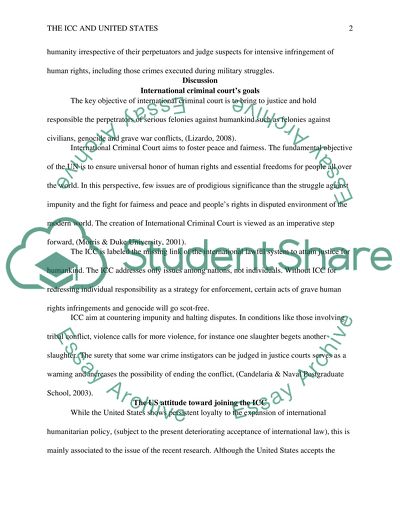Cite this document
(“United States and the International Criminal Court Research Paper”, n.d.)
Retrieved from https://studentshare.org/law/1458296-united-states-and-the-international-criminal-court
Retrieved from https://studentshare.org/law/1458296-united-states-and-the-international-criminal-court
(United States and the International Criminal Court Research Paper)
https://studentshare.org/law/1458296-united-states-and-the-international-criminal-court.
https://studentshare.org/law/1458296-united-states-and-the-international-criminal-court.
“United States and the International Criminal Court Research Paper”, n.d. https://studentshare.org/law/1458296-united-states-and-the-international-criminal-court.


